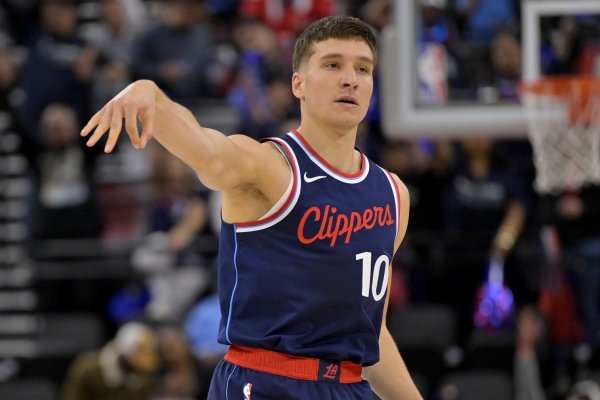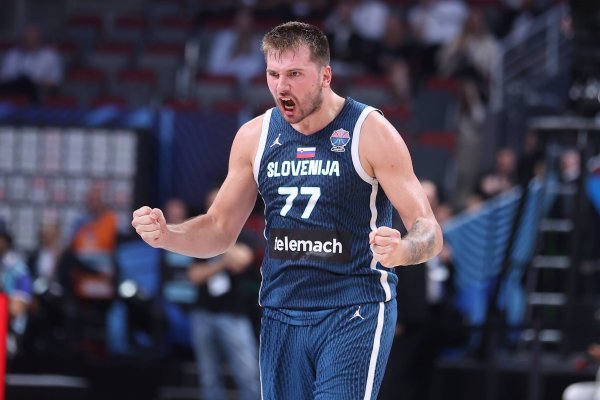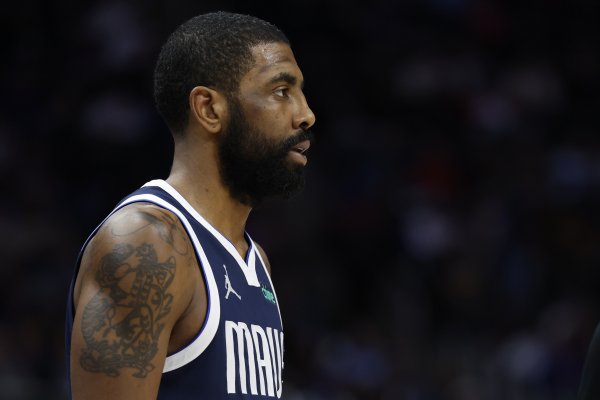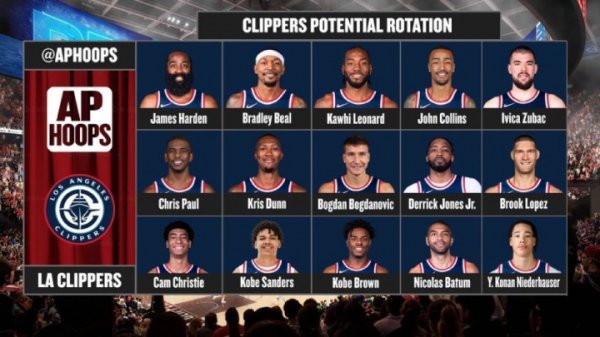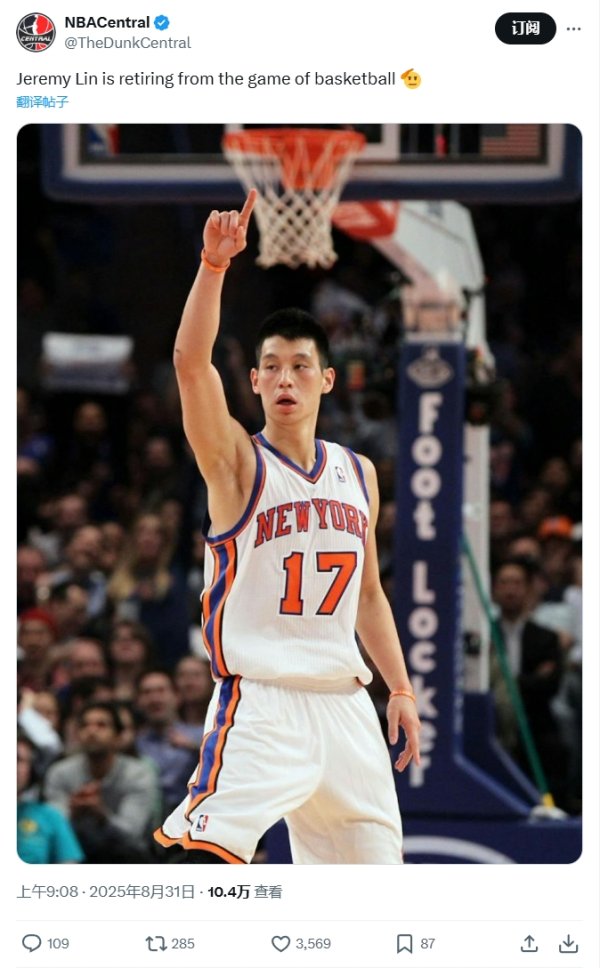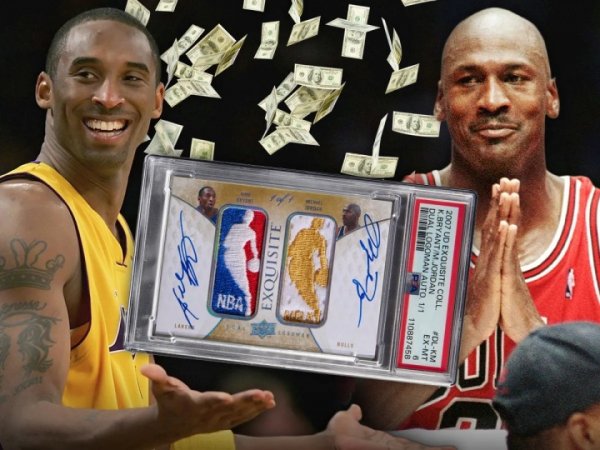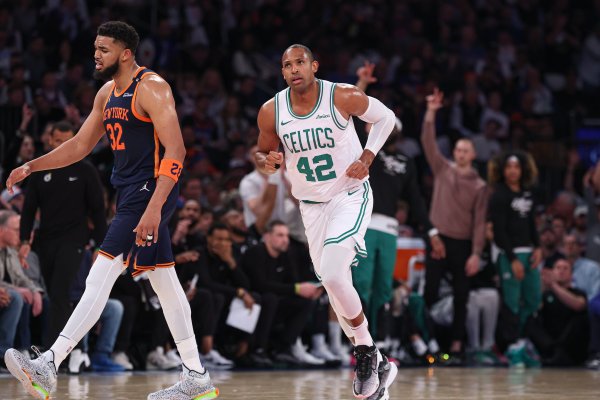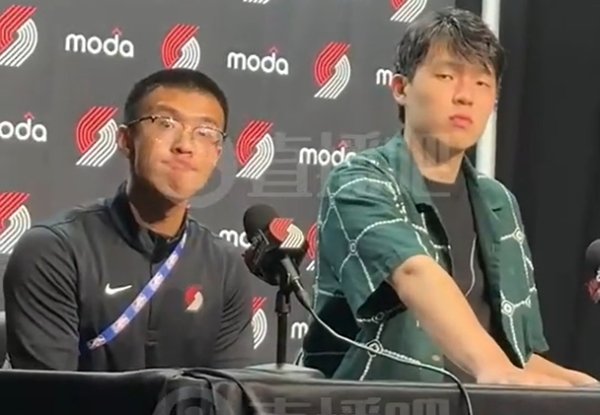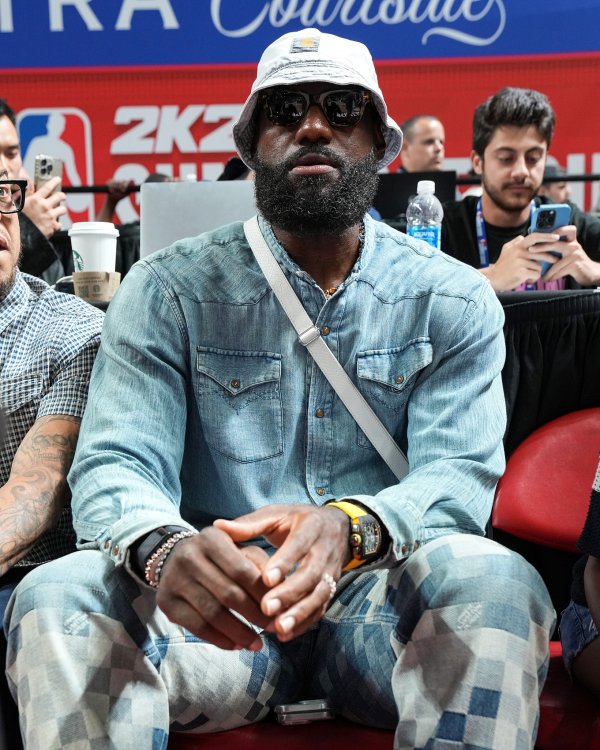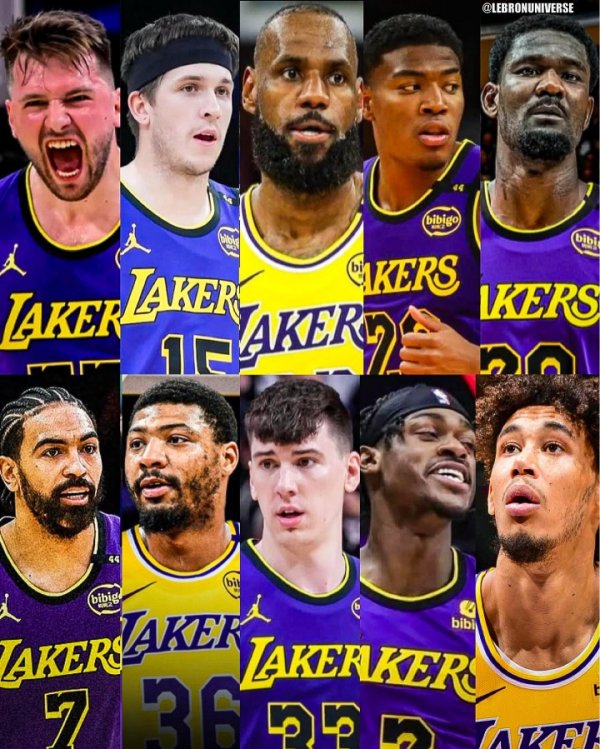NBA players must eat late night snacks
No one thought that Yang Hansen going out for a late-night snack would also trigger a wave of criticism. Just a few months ago, he quoted Yao Ming's advice after the rookie game at the joint trial: "He told me to eat well, drink well and sleep well." But now, he even has trouble eating.
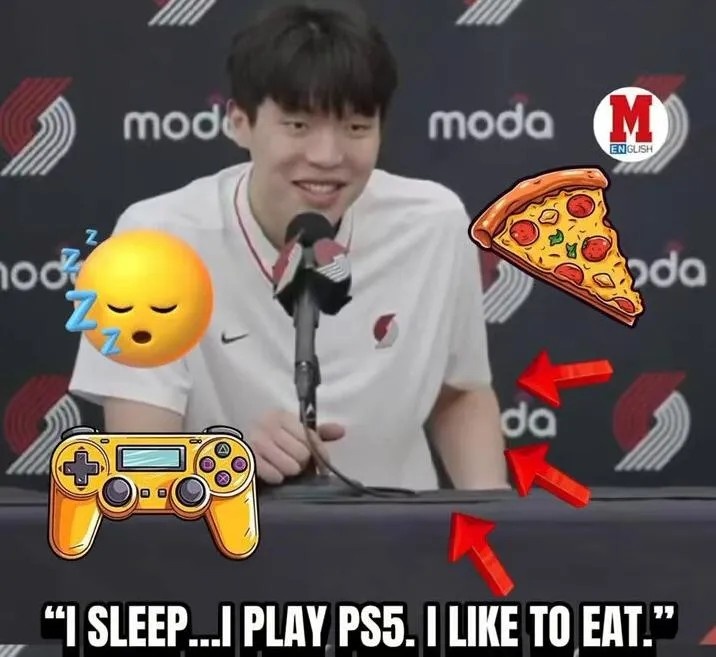
Of course, we all know that fans are anxious to see Yang Hansen play. In that rookie game, Yang Hansen was the most handsome player in the game with 12 points and 2 assists. So far in the regular season, he has averaged 5.8 minutes and 1.8 points per game.
However, compared with the dissatisfied Chinese fans, the Portland side was much calmer. Trail Blazers reporter Joe Freeman's first reaction was: "This looks delicious. I want to know which store he went to. I also want to eat hot pot with him after the game."
The insider then revealed more details: "It is very common for players to go out after the game, especially eating in restaurants. How many NBA players are there? Almost no one trains after the game. These players played 3 games in 4 days. Their pace is very fast and the players work very hard. They really need to rest after the game and the players also need to eat. This is very common and this is completely acceptable in NBA culture."
Freeman even gave the example of Kobe. After the Lakers and Trail Blazers played the game, Kobe and his teammates also went to the restaurant. "So it's not uncommon for everyone in the NBA to go out to eat."
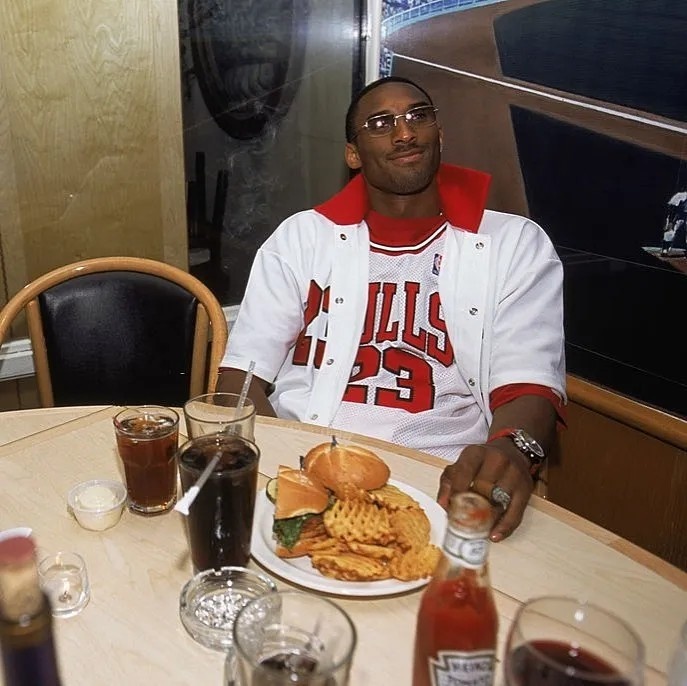
The NBA is a big dyeing vat, and there will never be a shortage of training madmen like Kobe Bryant and talented players like Shaq. However, as the intensity of the season and the overall level gradually increase, scientific training and diet experts are also the general trend. Every NBA player goes out to eat, but when they get home they still have to eat avocado, fish and chicken salad.
Domantas Sabonis, the second leader of the Fire Dragon family, is a typical example. He is also a big center born overseas. In the first 12 months of the year, Sabonis can only "eat whatever he wants" in the first month of the offseason. He will go to Spain to eat ham. He returns to Lithuania to eat potato pancakes, but as soon as this month is over, he will return to basketball training and strictly adhere to a puritan-like eating habit, staying away from gluten such as bread and pasta, and even cannot eat ubiquitous things such as apples and yogurt.
On training days during the offseason, Savoy will get up early and eat avocado, eggs, coffee, salad or oatmeal; after training in the morning, he will drink a milkshake rich in basic nutrients, followed by lunch; in the evening, he will mainly eat high-quality protein such as fish and steak, while trying to keep it as light as possible. After the meal, Savoy will practice shooting for about 45 minutes.
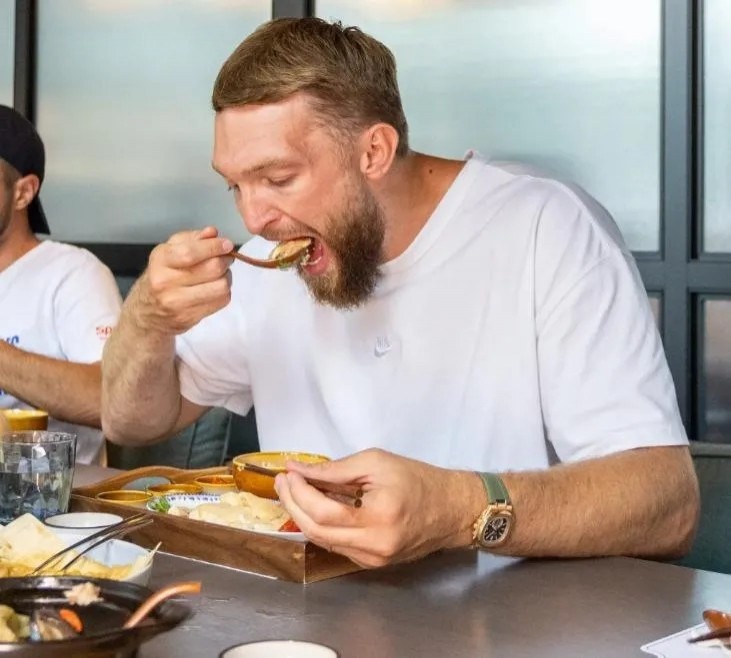
On game day, Sasha will consume more nutrients. He specifically mentioned that he will eat a meal after the game and consume a lot of protein and carbohydrates, such as chicken pasta and rice. Before training, he will also drink protein shakes and supplement creatine. "The most important thing is to maintain consistency. No matter what you do, stick to it and put in 100% effort. In the long run, it will definitely pay off."
Sasha has only one goal in formulating such a strict diet plan: to maintain his weight at a constant level throughout the season. This is also the core indicator for many NBA players to plan their diet.
Former NBA player and current Suns assistant coach Muscala is another example. He eats five meals on game days.
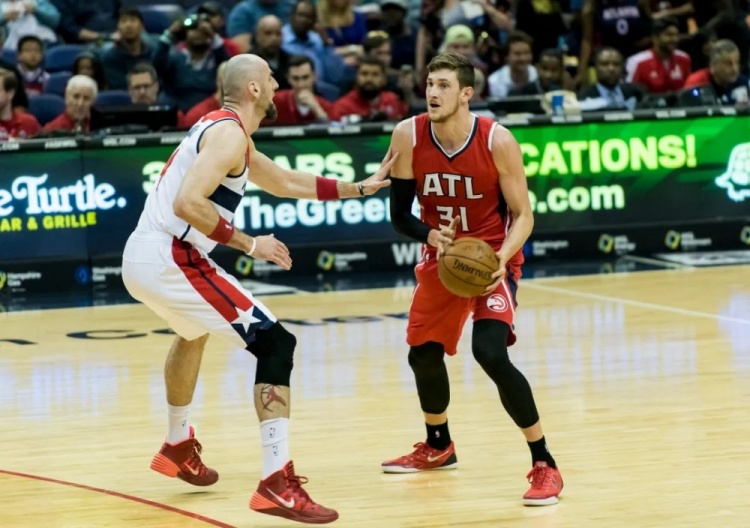
Muscala, who is 2.08 meters tall and weighs 109 kilograms, developed a detailed five-meal diet plan with the help of the team's nutritionist during his rookie year. The first meal is scheduled at 9 o'clock, mainly consisting of omelets, sausages, waffles and fruits. "Breakfast is very important to me. If I don't eat breakfast, my metabolism will be disordered and it will be more difficult to maintain weight."
The second meal is scheduled after the shooting training. At 1 p.m., Muscala usually chooses a customized lunch box from the supermarket; the third meal is at 4 p.m., a simple sandwich after a nap; the fourth meal is at 6 p.m., a cereal bar or jam sandwich before the game; the fifth meal is after the game, and a recovery drink and meal need to be supplemented immediately.
"If I play an away game, I will eat a sixth meal before lying down to sleep."
He has his own dietary guidelines: "Even if I don't eat the healthiest food, it is better than not eating at all. However, I will avoid refined carbohydrates and strictly control the intake of sugar and pasta. At the same time, I will not Will eat empty calorie foods (foods that contain a lot of calories but lack essential nutrients such as vitamins, minerals, protein and dietary fiber, such as cookies, potato chips, pastries and other pleasurable things)."
After using this five-meal combo during a road trip, Muscala was very happy. The reason why he was happy was: "I seem to have gained a pound in weight."
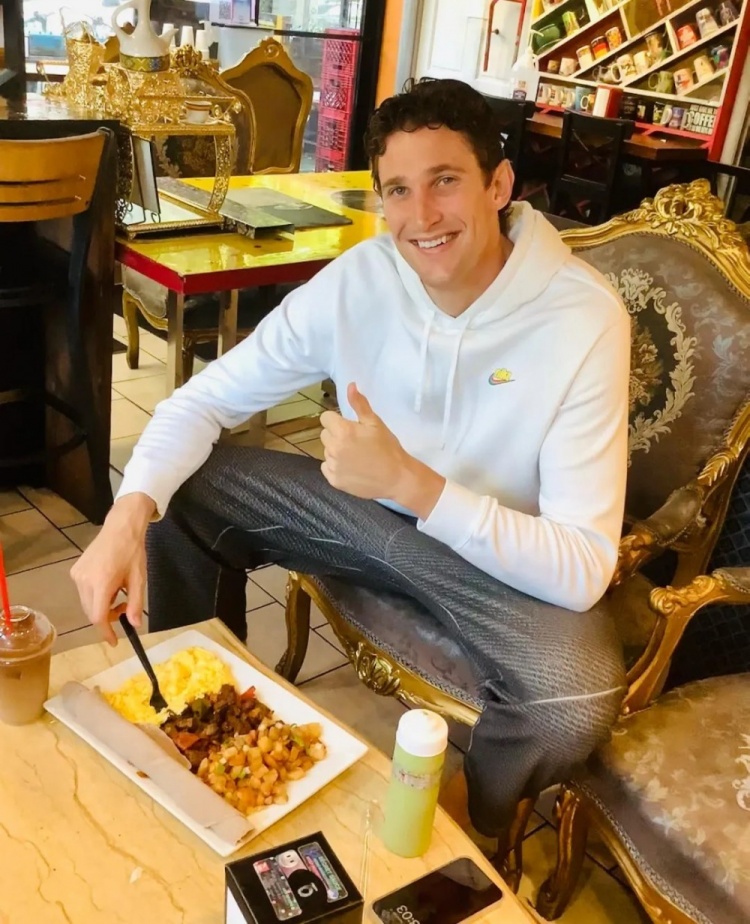
In fact, the five-meal system is not Muscala's exclusive set meal. O'Neal had eaten like this as early as the last century, but his purpose at that time was to eat less and more meals to lose weight.
Scientific theories such as nutrition are penetrating into professional sports like never before. Under the example of James, Nash, Ray Allen and other seniors, most NBA players have their own healthy recipes and eating plans, but everyone also has their own unique habits and preferences.
A self-disciplined person will always be self-disciplined - Jokic drank 3 liters of Coke a day in the Adriatic League, and later made up his mind on the plane to the United States and drank the last can of Coke in his career;
Booker ate fried chicken every day in college, and after entering the NBA, he specially hired a personal assistant The chef, like Curry, eats vegetables and fish;
Paul is even more thorough, turning to a vegetarian at the age of 34 and not touching any meat or fish;
Trae Young only weighed 74 kilograms when he first entered the league. In order to gain muscle, he drank 5 cups of protein shakes every day, which only increased to 81 kilograms..
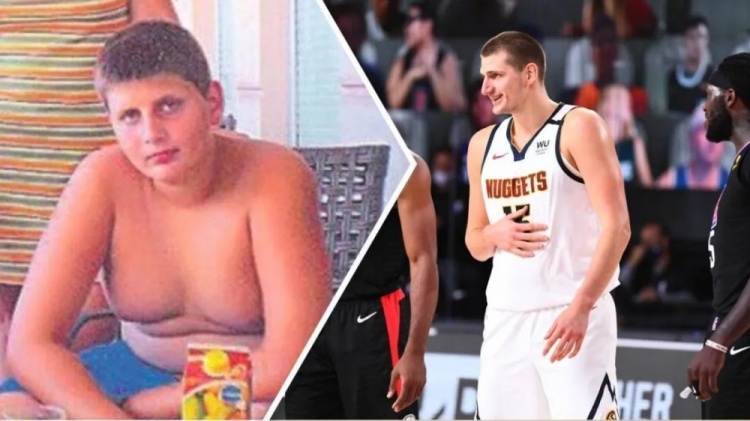
People with obsessive-compulsive disorder always have their own comfort zone - James must drink red wine every day, because red wine is good for heart health;
Durant eats at least six meals of fish and seafood a week to reduce stress in the body. Inflammatory response;
Antetokounmpo must drink a celery juice smoothie with fruit and protein every day, because experts say celery juice has anti-inflammatory effects;
Butler must eat avocados with every meal, because avocados are rich in "monounsaturated fat."
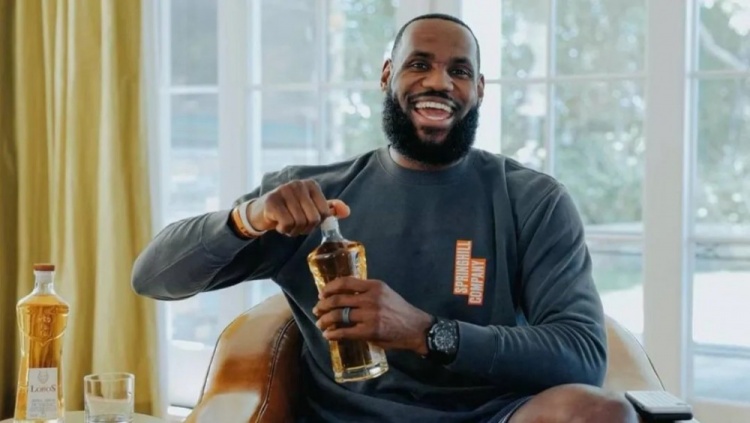
Of course, there are also weird ones - Ci Shiping only eats beans and nothing else before the game;
Jason Terry eats everything from fried chicken to roasted chicken before the game, but it can only be chicken;
Josh Hart has a sweet tooth and must eat a specific brand of candy before the game, along with a cup of coffee and a bag of popcorn. The candy company even customized an exclusive packaging box for him.
However, it is understandable that Hart did this. Only by consuming an excessive amount of sugar could he be able to fight the entire game under the whip of the plantation owner.
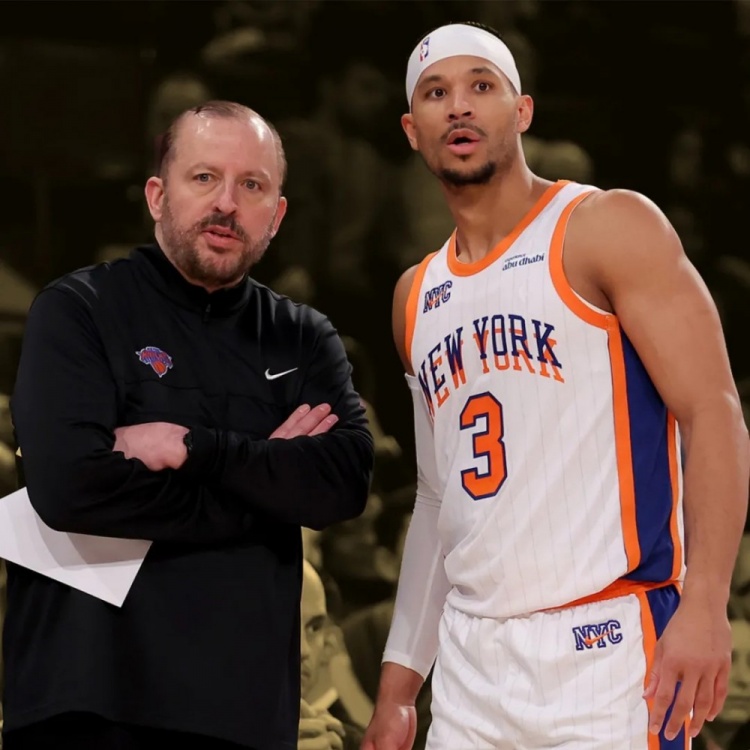
Darrell Armstrong is also a sweet tooth expert. He will drink a cup of coffee with 7 sugar cubes before the game and eat chocolate during midfield. During a certain playoff game, Armstrong defeated the Pistons after eating pig intestines. He thought it was good luck, so he ate two games in a row, and the Magic actually held the match point 3-1. But this kind of superstition is brittle than the casings of pig intestines. Armstrong was not happy for a few days before the Magic were eliminated by the Pistons in three consecutive games. He never touched pig intestines again.
Compared with those self-disciplined stars who have personal chefs, there are more ordinary people like Hart who enjoy eating and drinking.
Gary Payton even has a complete pre-game dining ritual - he will lie in the jacuzzi and eat a McDonald's Big Mac meal while soaking in the bath.
But Payton played in the NBA for the entire 18 years, playing in 1,335 games, maintaining full attendance in 10 years, and missing only one game in the other 3 years. It can only be said that McDonald's is indeed a good health medicine for him.
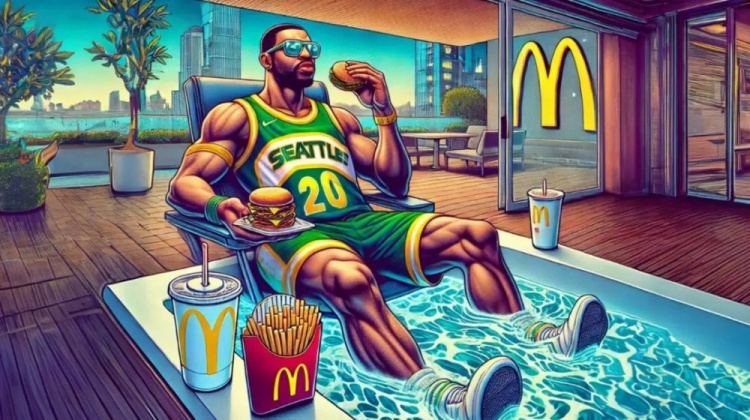
But no matter what they eat, there will always be people who will make it a topic of discussion, including people in the circle.
James showed off a red wine dinner before the start of the season, and was questioned by fans for "drinking even though he suffers from sciatica."
Embid always eats and massages before games, eating everything from grapes to cheeseburgers, and even eats them in the arena before the game starts. Now Beverley has complained harshly on the podcast: "Habits are very important, hard training is very important, if you don't respect the game, the game will always make you pay the price. I won't say that eating cheeseburgers before the game is the cause of his current situation, but doing so is really not good for you."
Beverley does have this qualification. He has been in the league for 12 full years and knows better than anyone what it takes to achieve this step: "You have to sacrifice your lifestyle, body and daily habits, and you have to do something to allow yourself to play as long as possible."
But in the end, no one except the players themselves will really care about these things. Who still remembers that Garnett would gather his friends after the game to eat steak and lobster and drink Coca-Cola? Who still remembers that Yao Ming 20 years ago would often order a whole pizza in the away hotel and devour it in front of the TV?
In the end, only results will remember everything. This is performance-based learning that is unique to competitive sports.
Everyone is welcome to visit our WeChat public account "Houchang Village Sports Team" for more NBA and CBA related archeology, comments and character content>>
(Text/Pan Zhili)


